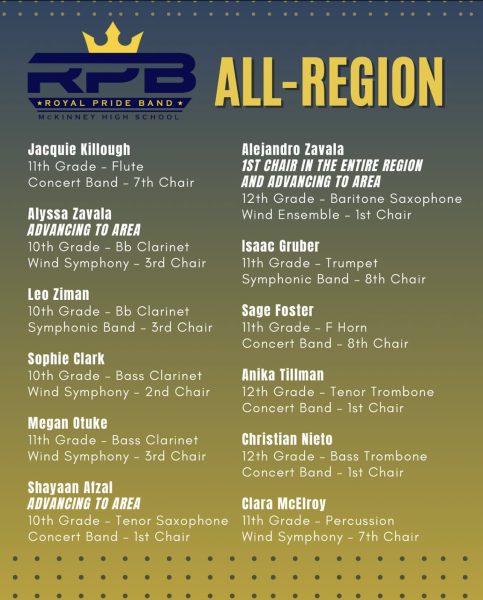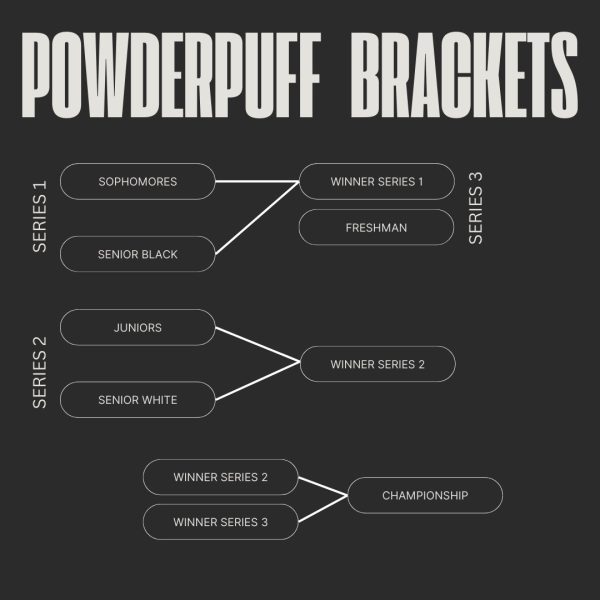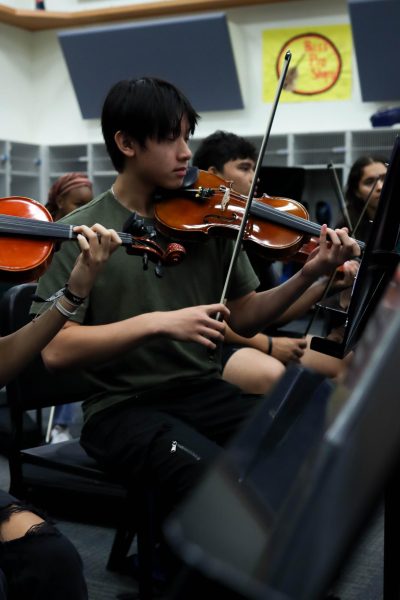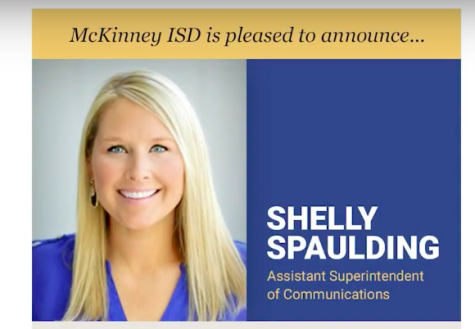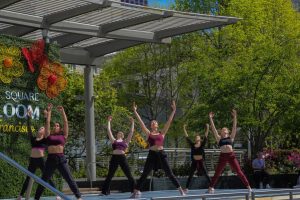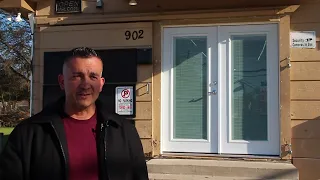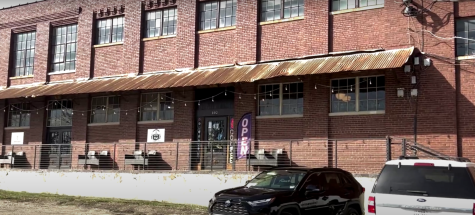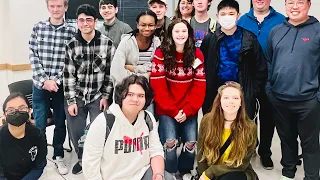17 minutes: students walk out in solidarity with Parkland shooting victims
“No more violence,” “Please don’t shoot” among chants of the 670 who protested
February 23, 2018
Fists pumping in the air, huddled together in the cold rain, students chanted, “We want change!”
More than 670 students walked out of class in support of the 17 students who lost their lives during the Marjory Stoneman Douglas school shooting in Parkland, Florida. This demonstration was the first of four, the next three scheduled for March 14, March 24, and April 20—the anniversary of Columbine.
“I lived in Florida for 10 years and attended public school there,” senior Aidan Smith said. “When I heard about what happened, my thoughts immediately went to my friends that still live in Florida. What could’ve happened to them if it was at the school they used to go to? It really just reminded me of how easy it can happen to anyone.”
Aidan’s personal connection drove him to lead the crowd.
“I was surprised by how many people showed up,” he said. “My friend Jack and I thought maybe 10 or 12 people would come out, and as dozens and dozens of people started coming out. We got so much more amped up. We got so much more excited. So, we decided to try and take charge a little bit and try to make everyone’s voices heard.”
Starting chants like “17” and “No more violence,” Aidan and his friends stood in the center of the crowd. Standing on the porch with her friends, senior Kaylin Enyia also worked to catch the crowd’s attention.
“The student body has never done something like this before,” Kaylin said. “I wanted to be a part of it. I think the shooting was tragic, and before it happened, people should already have been asking for gun control. We don’t pay attention as a whole—we stop thinking and talking about school shootings until another one happens.”
As both groups expressed their similar views, the atmosphere became more passionate. Students started piggybacking on friends, but administrators ended that for safety reasons.
“I was in the middle of it all, and I felt fine. I felt good,” Assistant Principal Annuar Ortiz said. “There were a number of students who were fairly vocal, especially toward the center of the crowd, and some other students were in the back, and every once in awhile they chimed in.”
Although he made sure students stayed safe, he wanted to make sure students could express themselves, a choice the district made together. Administrators enforced the policy while principal Alan Arbabi was on paternity leave.
“Word started getting around that some students wanted to demonstrate,” Mr. Ortiz said, “and so our approach was, ‘how can we balance students and their desire to express themselves with safety?’ I don’t think the students who really have a heart for this specific demonstration would want it to become something that is negative where people are behaving in unsafe ways, and others get injured. The message is lost.”
Although no negative incidents occurred, students realized a few of their peers had walked out to skip class rather than support the cause.
“I was ashamed of those students,” senior Molly Johnson said. “It felt like such an important thing to be a part of. To have such demoralizing motives to be out there, I was ashamed. You’re using 17 children’s deaths to skip 17 minutes of class.”
For the people who cared, Molly tweeted out congressman Sam Johnson’s contact information after the protest. Like the teenagers organizing across the country, she used social media to channel the students’ passion.
“I kind of thought that the walkout wouldn’t be effective, because I thought after it ended, people would feel like ‘I’ve done my part and I don’t have to do anything else,’” she said. “I wanted this to have a more lasting effect. I wanted our government to understand that people they represent are angry, and want change.”
She said the type of change didn’t matter.
“I think that everyone supports this cause in a different way,” she said. “No matter what people are saying, everyone agrees that something needs to change. While this march may have been about gun violence specifically, I think it’s important to recognize something needs to change and something needs to be done because the status quo isn’t keeping children safe.”
Regardless of political views, administrators enjoyed the students’ passion.
“Whenever we see students, whatever it may be, who are becoming engaged, is an important lesson,” Mr. Ortiz said. “Whether it’s political engagement, whether it’s engagement through community service–as long as you’re trying become a part of something bigger than yourself, I think that’s part of really maturing as an individual. And that’s important.”


